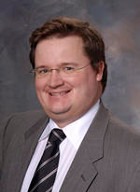Indonesia Plans To Become Major Player in Car Industry
SOUTHEAST ASIA: INDONESIA REPORT
Amid the global shift to EVs, Indonesia is vying to become the new leader in this segment.
Indonesia has already surpassed Thailand in passenger car production and has begun full-scale EV production ahead of Thailand. Thailand has begun to defend its position as the auto manufacturing hub of Southeast Asia by offering preferential policies for EVs, including subsidies for both domestic production and sales.
Indonesia’s greatest strength is its abundance of nickel, which is used in car batteries. It is said to have the largest nickel reserves in the world, and investment in this resource is growing rapidly. In April, the Indonesian government announced that it was considering investing in a nickel production venture involving Ford of the United States and that VW of Germany was also considering participation.






